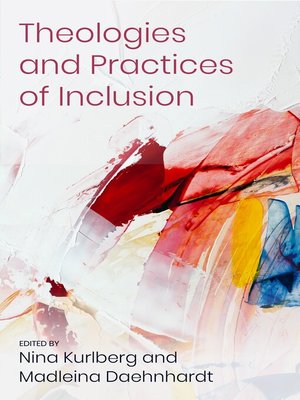Theologies and Practices of Inclusion
ebook ∣ Insights From a Faith-based Relief, Development and Advocacy Organization
By Nina Kurlberg

Sign up to save your library
With an OverDrive account, you can save your favorite libraries for at-a-glance information about availability. Find out more about OverDrive accounts.
Find this title in Libby, the library reading app by OverDrive.



Search for a digital library with this title
Title found at these libraries:
| Library Name | Distance |
|---|---|
| Loading... |
Inclusion has recently become a high priority issue within the development sector, brought to the fore by the 2030 Agenda for Sustainable Development's commitment to leave no one behind. Practices within the remit of inclusion often focus on increasing access and meaningful participation, with emphasis placed on bringing those at the margins to the centre. This book challenges such centre-focused practices from a global perspective, based on research conducted within the Christian relief, development and advocacy organisation Tearfund and beyond.
Offering inspiration for practitioners within the sector and faith-based organisations in particular, as well as an academic contribution to the fields of international development studies and theology, the book aims to bridge theology and practice in an accessible way.
Consisting of 13 chapters and case studies, the book draws on the wisdom of a diverse team of contributors at the forefront of international development, working in a variety of contexts. These include South Africa, Malaysia, Sri Lanka, Ethiopia, Nigeria, Kenya, Rwanda, Ecuador, Panama, Bolivia, the Philippines, Iraq, Egypt and the UK. Highlighting 'journey', 'change' and 'belonging' as three key aspects of inclusion, the book explores the outworking of theologies of inclusion within organisational practice.
With a foreword by Ruth Valerio, and an afterword by Catriona Dejean.







